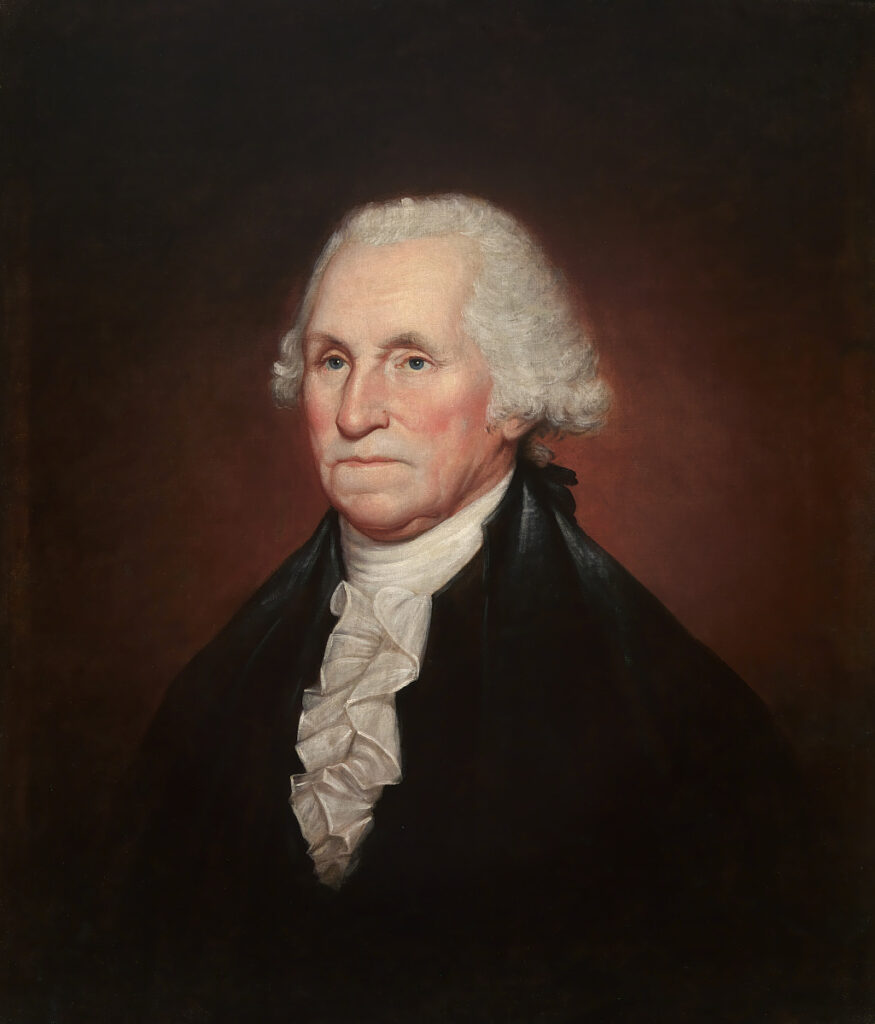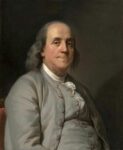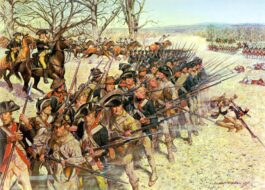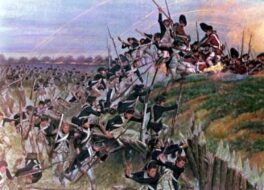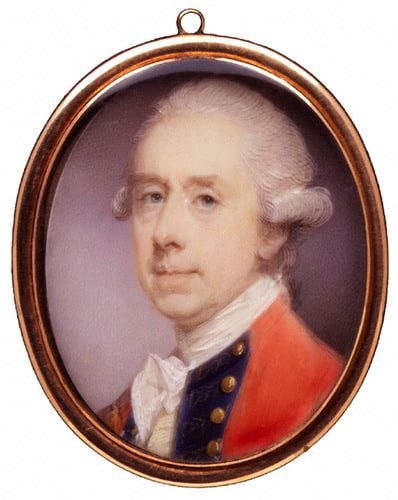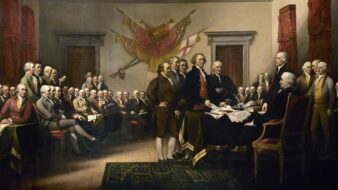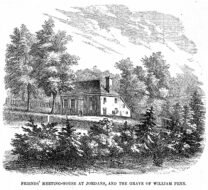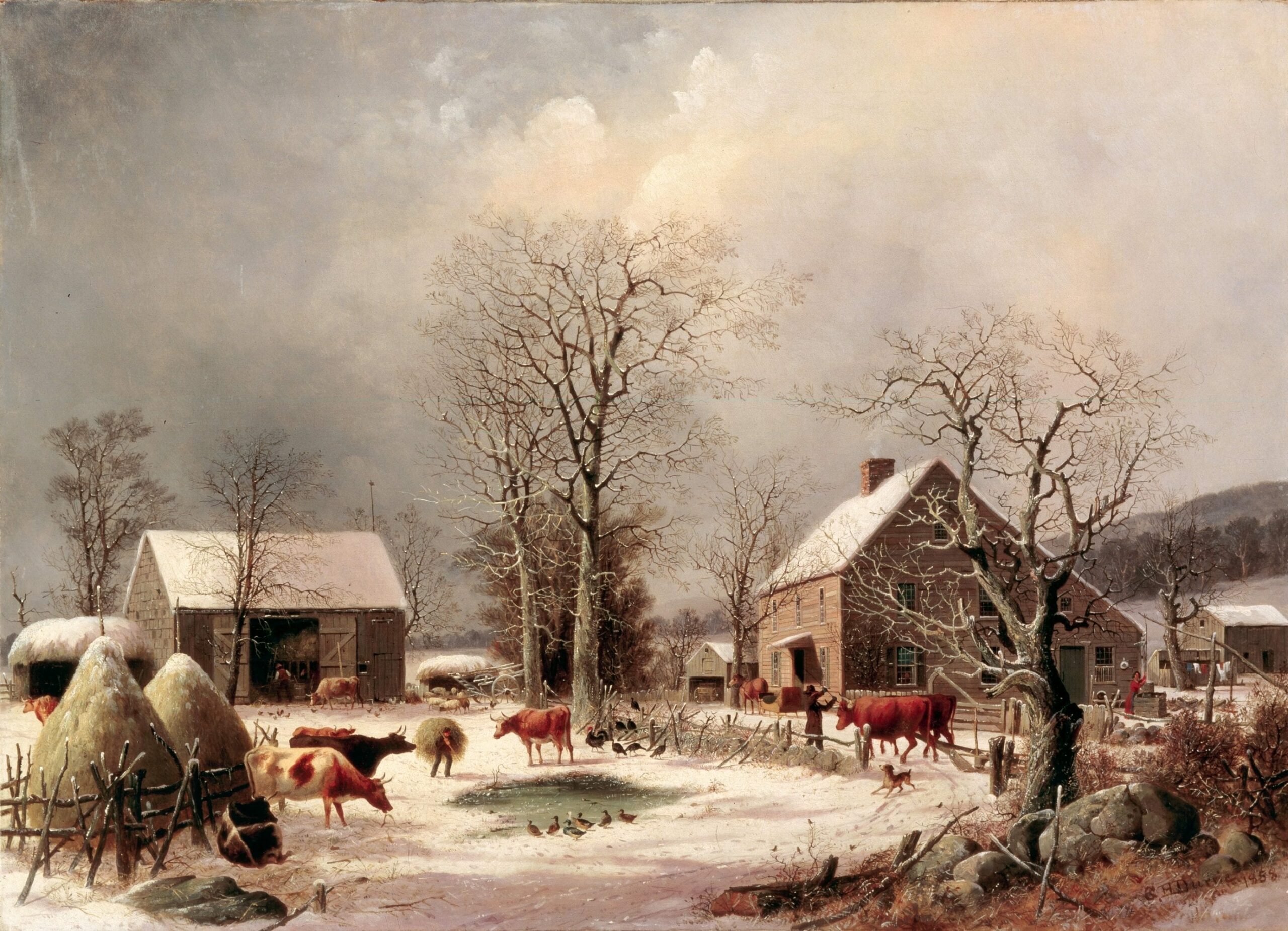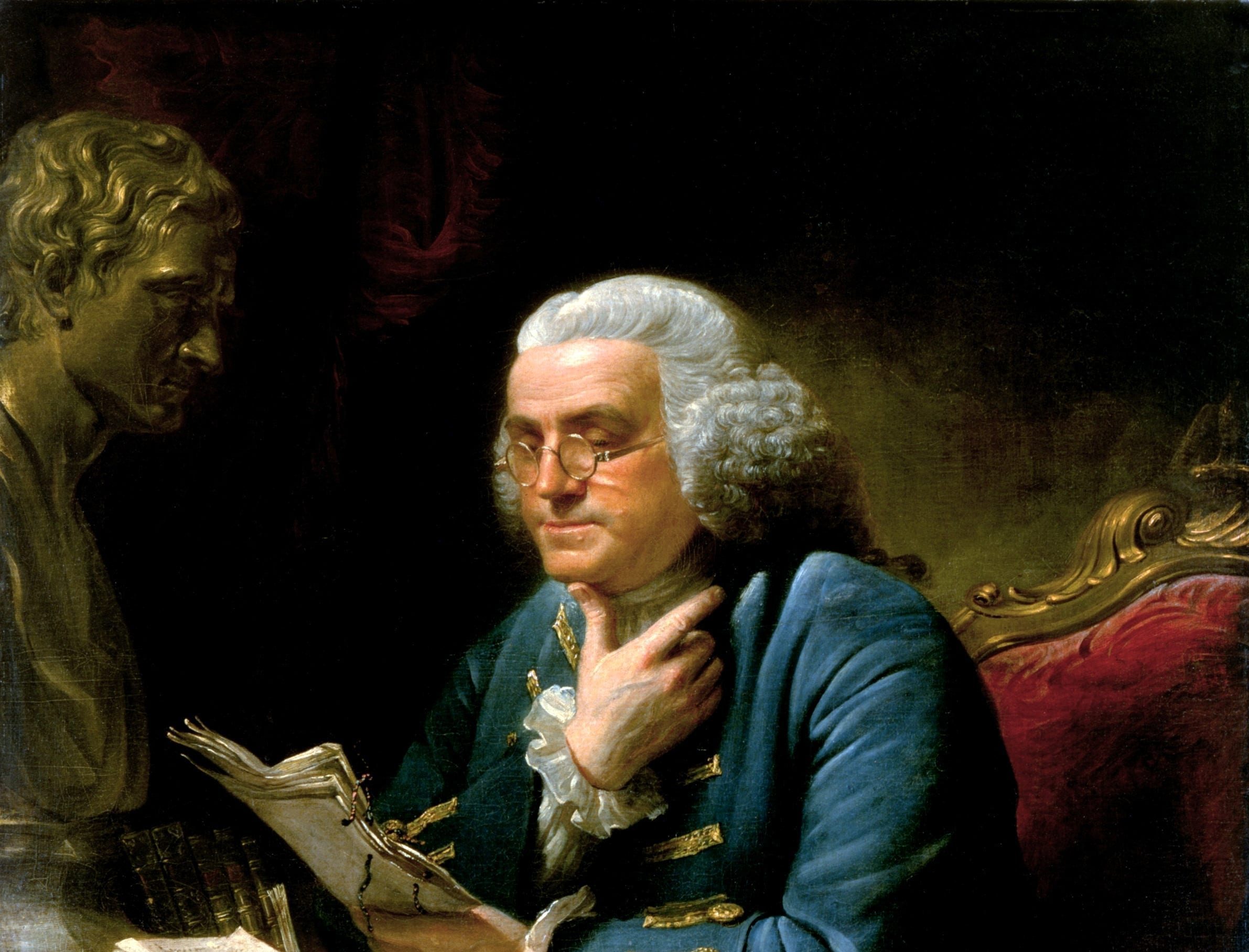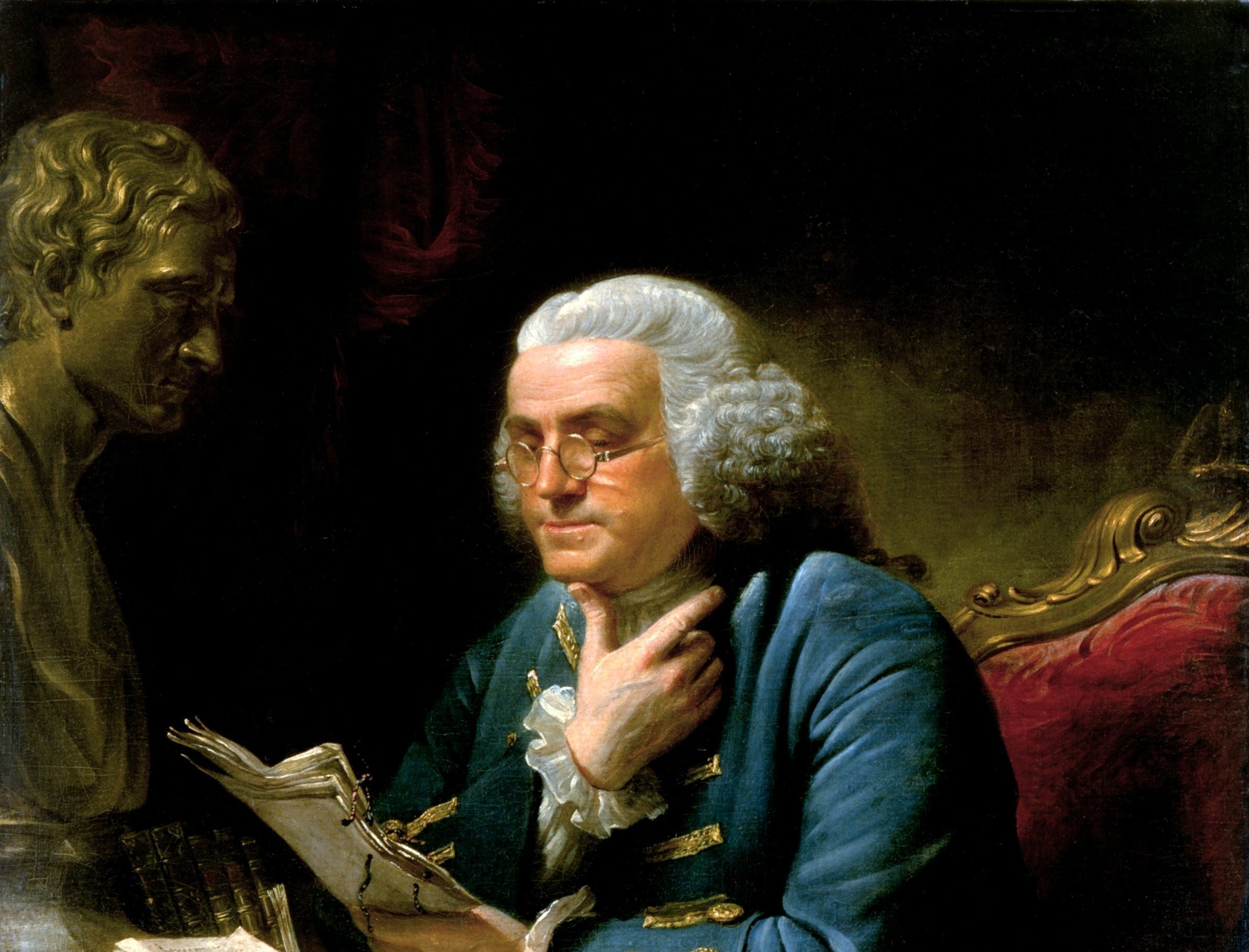“From George Washington to William Gordon, 8 July 1783,” Founders Online, National Archives, https://teachingamericanhistory.org/isty.
Dear Sir:
Your favor of the 19th. of June came to my hands on Sunday last by the Southern Mail; from this circumstance, and the date of it I conclude it has been to Philadelphia, a mistake not very unusual for the Post master at Fishkiln to commit.
I delayed not a moment to forwd. the letters which came to me under your cover of the 26th. of Feby. to New York. I did not answer the letter which accompanied them in due Season; not so much from the hurry of business, as because my Sentiments on the essential part of it had been communicated to you before; and because the Annunciation of Peace, which came close upon the heels of it, put an end to all speculative opinions with respect to the time and terms of it.
I now thank you for your kind congratulations on this event. I feel sensibly the flattering expressions, and fervent wishes with which you have accompanied them, and make a tender of mine, with much cordiality, in return. It now rests with the Confederated Powers, by the line of conduct they mean to adopt, to make this Country great, happy, and respectable; or to sink it into littleness; worse perhaps, into Anarchy and Confusion; for certain I am, that unless adequate Powers are given to Congress for the general purposes of the Federal Union that we shall soon moulder into dust and become contemptable in the Eyes of Europe, if we are not made the sport of their politicks; to suppose that the general concern of this Country can be directed by thirteen heads, or one head without competent powers, is a solecism, the bad effects of which every Man who has had the practical knowledge to judge from, that I have, is fully convinced of; tho’ none perhaps has felt them in so forcible, and distressing a degree. The People at large, and at a distance from the theatre of Action, who only know that the Machine was kept in motion, and that they are at last arrived at the first object of their Wishes are satisfied with the event, without investigating the causes of the slow progress to it, or of the Expences which have accrued and which they now seem unwilling to pay; great part of which has arisen from that want of energy in the Federal Constitution which I am complaining of, and which I wish to see given to it by a Convention of the People, instead of hearing it remarked that as we have worked through an arduous Contest with the Powers Congress already have (but which, by the by, have been gradually diminishing) why should they be invested with more?
To say nothing of the invisible workings of Providence, which has conducted us through difficulties where no human foresight could point the way; it will appear evident to a close Examiner, that there has been a concatenation of causes to produce this Event; which in all probability at no time, or under any Circumstances, will combine again. We deceive ourselves therefore by this mode of reasoning, and what would be much worse, we may bring ruin upon ourselves by attempting to carry it into practice.
We are known by no other character among Nations than as the United States; Massachusetts or Virginia is no better defined, nor any more thought of by Foreign Powers than the County of Worcester in Massachusetts is by Virginia, or Glouster County in Virginia is by Massachusetts (respectable as they are); and yet these Counties, with as much propriety might oppose themselves to the Laws of the State in wch. they are, as an Individual State can oppose itself to the Federal Government, by which it is, or ought to be bound. Each of these Counties has, no doubt, its local polity and Interests. these should be attended to, and brought before their respective legislatures with all the force their importance merits; but when they come in contact with the general Interest of the State; when superior considerations preponderate in favor of the whole, their Voices should be heard no more; so should it be with individual States when compared to the Union. Otherwise I think it may properly be asked for what purpose do we farcically pretend to be United? Why do Congress spend Months together in deliberating upon, debating, and digesting plans, which are made as palatable, and as wholesome to the Constitution of this Country as the nature of things will admit of, when some States will pay no attention to them, and others regard them but partially; by which means all those evils which proceed from delay, are felt by the whole; while the compliant States are not only suffering by these neglects, but in many instances are injured most capitally by their own exertions; which are wasted for want of the United effort. A hundd. thousand men coming one after another cannot move a Ton weight; but the united strength of 50 would transport it with ease. so has it been with great part of the expence which has been incurred this War. In a Word, I think the blood and treasure which has been spent in it has been lavished to little purpose, unless we can be better Cemented; and that is not to be effected while so little attention is paid to the recommendations of the Sovereign Power.
To me it would seem not more absurd, to hear a traveller, who was setting out on a long journey, declare he would take no Money in his pocket to defray the Expences of it but rather depend upon chance and charity lest he should misapply it, than are the expressions of so much fear of the powers and means of Congress. For Heavens sake who are Congress? are they not the Creatures of the People, amenable to them for their Conduct, and dependant from day to day on their breath? Where then can be the danger of giving them such Powers as are adequate to the great ends of Government, and to all the general purposes of the Confederation (I repeat the word genl, because I am no advocate for their having to do with the particular policy of any State, further than it concerns the Union at large). What may be the consequences if they have not these Powers I am at no loss to guess; and deprecate the worst; for sure I am, we shall, in a little time, become as contemptable in the great Scale of Politicks as we now have it in our power to be respectable; and that, when the band of Union gets once broken, every thing ruinous to our future prospects is to be apprehended; the best that can come of it, in my humble opinion is, that we shall sink into obscurity, unless our Civil broils should keep us in remembrance and fill the page of history with the direful consequences of them.
You say that, Congress loose time by pressing a mode that does not accord with the genius of the People, and will thereby, endanger the Union; and that it is the quantum they want. Permit me to ask if the quantum has not already been demanded? Whether it has been obtained? and whence proceed the accumulated evils, and poignant distresses of many of the public Creditors, particularly in the Army? For my own part I hesitate not a moment to confess, that I see nothing wherein the Union is endangered by the late requisition of that body; but a prospect of much good, justice, and propriety from the compliance with it. I know of no Tax more convenient; none so agreeable, as that which every man may pay, or let it alone as his convenience, abilities, or Inclination shall prompt. I am therefore a warm friend to the Impost.
I can only repeat to you, that whenever Congress shall think proper to open the door of their Archives to you, (which can be best known, and with more propriety discovered through the Delegates of your own State), All my Records and Papers shall be unfolded to your View, and I shall be happy in your Company at Mr. Vernon, while you are taking such Extracts from them, as you may find convenient. It is a piece of respect wch. I think is due to the Sovereign Power to let it take the lead in this business (without any interference of mine). And another reason why I choose to withhold mine, to this epoch is, that I am positive no History of the Revolution can be perfect if the Historiographer has not free access to that fund of Information.
Mrs. Washington joins me in Compliments to Mrs. Gordon and I am etc.


